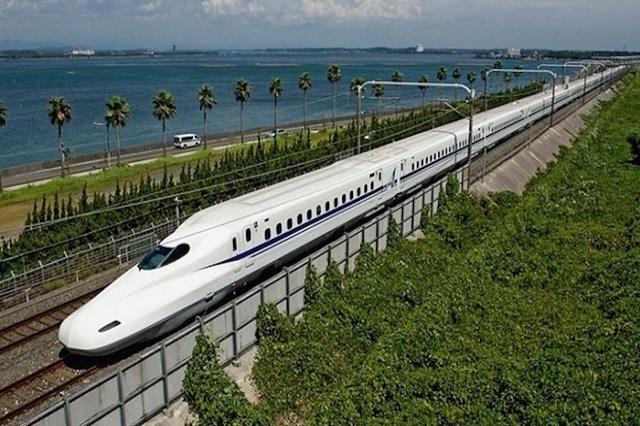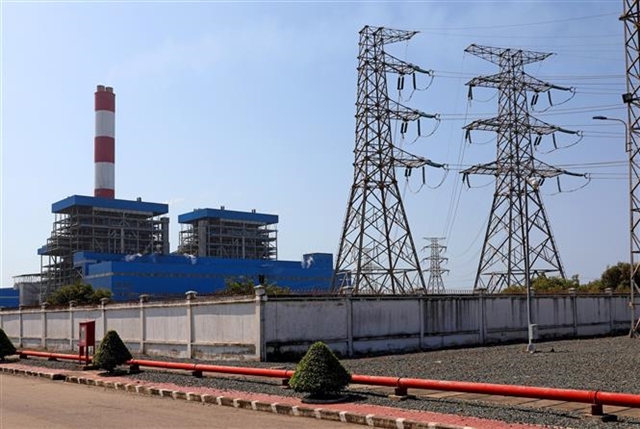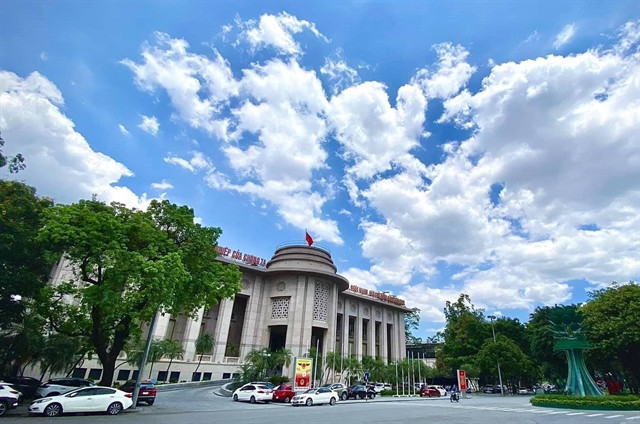 Economy
Economy


|
| Duyên Hải Thermal Power Plant in the southern province of Trà Vinh. VNA/VNS Photo |
HÀ NỘI —Việt Nam energy sector's assets face high risk due to climate change and the country's commitment to a shift towards greener energy and economic structure in accordance with the 26th UN Climate Change Conference of the Parties (COP26), according to economists and industry experts.
Dr Vũ Sỹ Cường from the Vietnam Academy of Finance said climate change will likely have a significant impact on Việt Nam's energy sector, especially its thermal power plants.
Higher temperatures tend to decrease the plant's power generation efficiency while increasing water temperatures can have adverse effects on their cooling systems. Commitments to reducing the country's carbon footprint will also affect Việt Nam's numerous coal-fired power plants.
Fueling such power plants will likely run into a host of problems in the future as coal mining in the northern province of Quảng Ninh and in the Red River Delta region has been facing growing issues due to higher frequency and intensity of storms and floods, leading to higher production cost and lower output.
Adverse effects of climate change such as heavier rainfall and extreme weather events will likely increase the cost of maintaining the energy grid, as well as repair, upgrade and installation.
Extreme weather events will also cause more damage to the country's energy systems while raising the cost of new investments and energy transport, including the petroleum refining industry.
Stranded assets
On top of mounting challenges faced by the energy sector, Việt Nam's transition to greener energy and economic structure is already putting many assets in the energy sector at risk of being stranded, especially coal-fired power plants, said researchers and industry experts.
Coal-fired plants face a significant risk of being shut down earlier than their designed life spans due to the government's commitment to shifting to more environmental-friendly energy sources.
Meanwhile, many European countries and Japan have announced a halt in financing support for coal-fired plants, meaning investors will now have to borrow at higher costs, hurting their ability to recover investments in the shorter term. A vast majority of energy projects that enjoy preferential rates in Việt Nam are in the renewable energy sector.
Given the nature of energy projects, which often require large amounts of capital investment, the cost of borrowing has a significant impact on coal-fire plants' operational efficiency.
The government, bounded by CO2 emission commitments, may also step in to shorten the life spans of such plants. This could give rise to future legal disputes with investors, especially in build-operate-transfer projects.
According to a report by the Ministry of Construction, Việt Nam had 29 coal-fired power plants in operation in 2021 with thermal energy accounting for 32 per cent, a significant chunk of the country's total output.
In order to fully meet COP26's commitments as well as to reach Việt Nam's net-zero target by 2050, the government has announced a ban on all thermal power plants after 2030. It has also set a goal to bring down coal-fired plants' output to 37,476MW, or just a quarter of the country's total output. VNS




